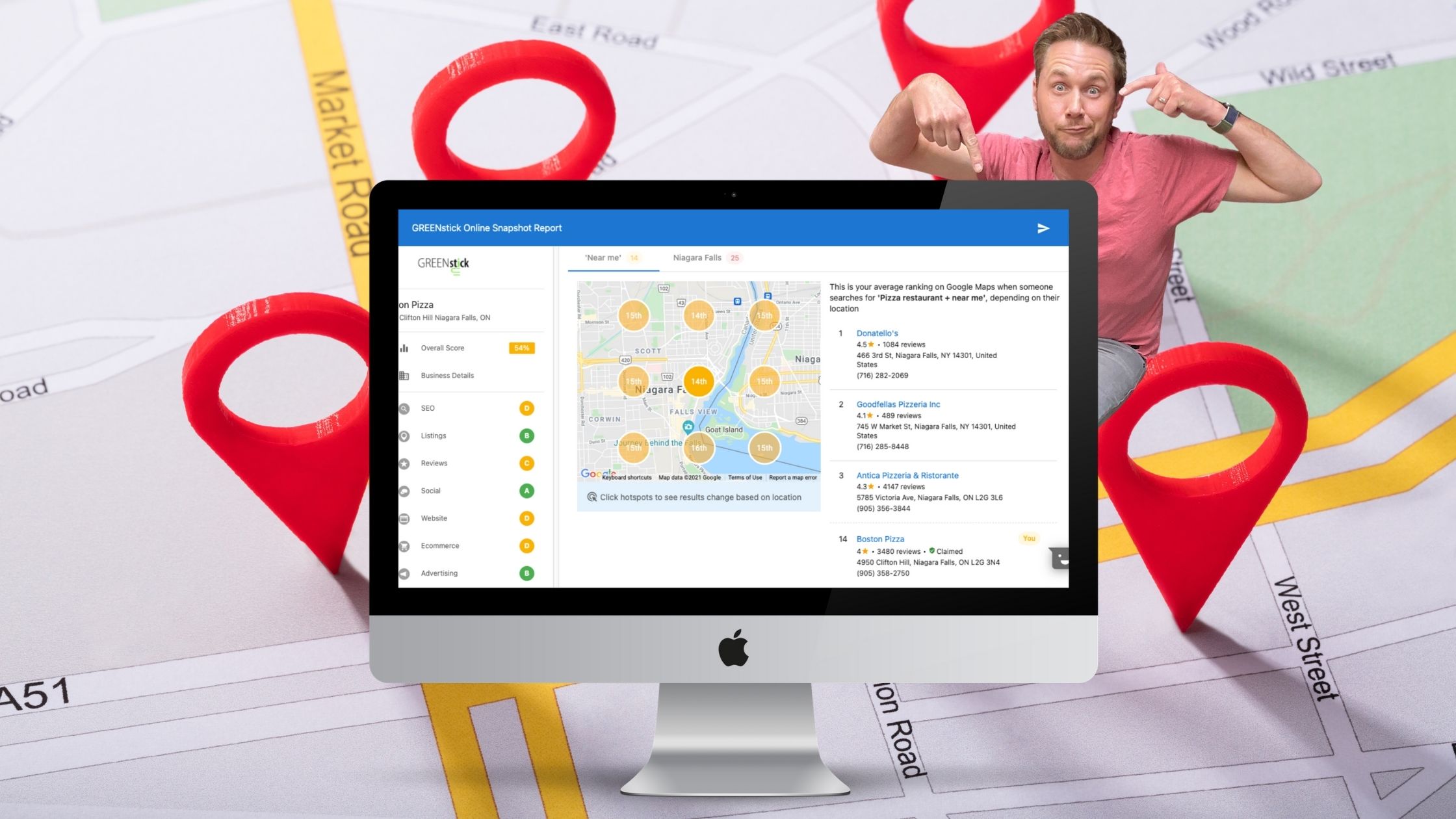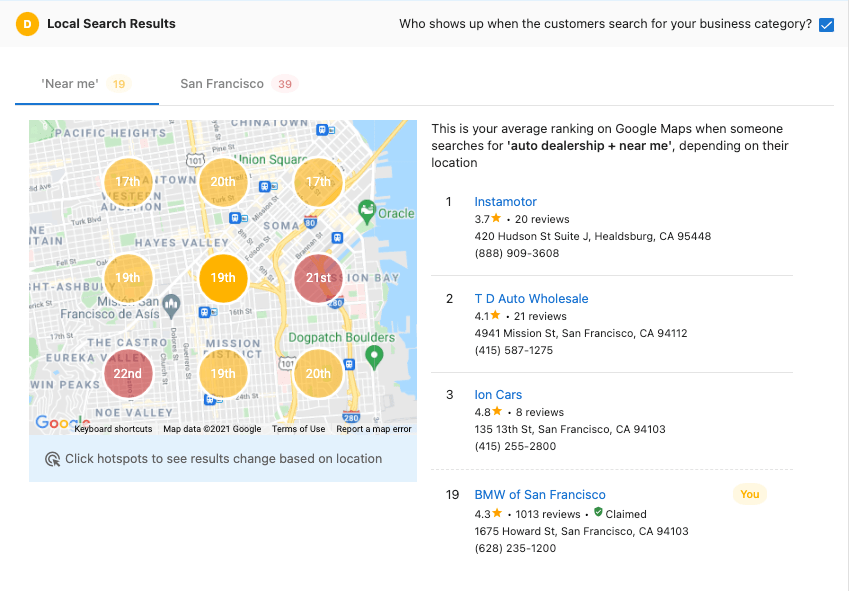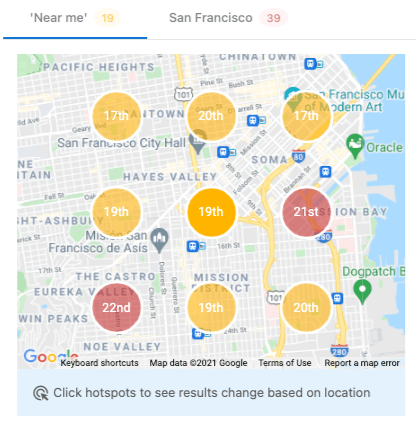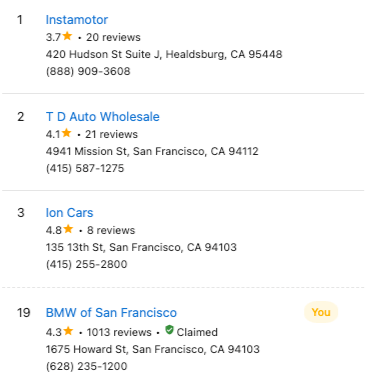A strong SEO strategy is vital for any business looking to compete online. The main objective of SEO is to increase a website’s traffic and, ultimately, its conversion rate.
This is accomplished by ranking high in the search results for keywords related to the business. The SEO strategy’s mission is to optimize the website’s content so that search engines find the business and its products and services more relevant and authoritative than their competitors.
This is why you must understand how your small business appears in local search results and how a majority of your online information affects your business’s search ranking. Snapshot Report can be a great tool in helping you visualize this as it shows precisely how your business ranks within Google Search.
Snapshot Report SEO Section Breakdown
Local Search Results
This section displays exactly how your business appears within Google’s search results. This helps you to visualize how your business appears for any new customers with no prior search history. This section is broken up into two separate parts.
Google Map: This displays the business’s rank within an 800-meter radius around the business’s location. Each hotspot is clickable and shows how the business ranks within that hotspot compared to local competitors for the selected keyword.
Search Results: This showcases the top three search results for the selected hotspot, and where your business appears. If you don’t appear within the top three results, your business will appear just below and include the business’s current search ranking. You’ll also be able to see whether your Google My Business profile is claimed or not, which can affect how your business ranks within these results.
NOTE: The keyword that is chosen is pulled from your Google My Business account IF it is claimed, and if it is not claimed, then it uses your business category.
Organic Keyword Performance
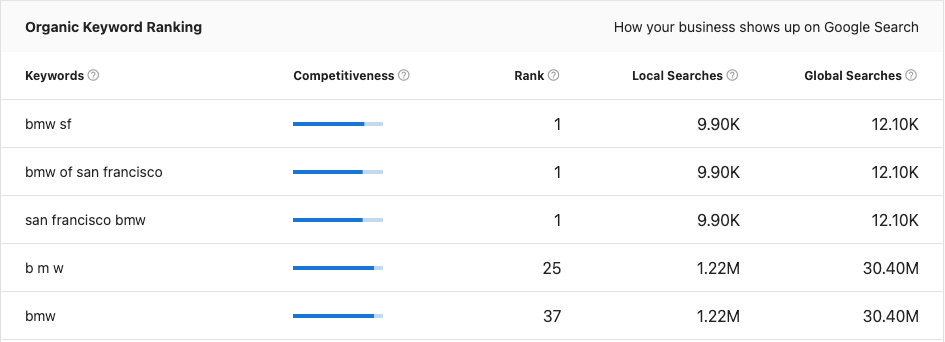
Organic Keyword Performance measures your business against your competition regarding the number of keywords your business ranks for organically. The higher the value per click, the more optimized your keywords are. This data is pulled from Spyfu for businesses in the United States and SEMrush for any international business.
Keywords: This number shows how many organic keywords your business shows up for within the top 50 results of Google. So while your business may show up for more than this number of keywords, those keywords won’t be counted if the business appears within the 50+ results.
Clicks: This measures how many times those keywords have led to a user clicking on and visiting your website from Google Search.
Value: This shows how much you would spend monthly in paid ads for those exact keywords to receive the same amount of clicks you are getting organically.
Value per click: Value per click = Value / Clicks. This is the value of each organic click your business receives.
Organic Keyword Ranking

Organic Keyword Ranking displays up to 5 of the top keywords your business currently ranks for. This gives you a good idea of how Google views your website based on its content. This data is pulled from Spyfu for businesses in the United States and SEMrush for any international business.
Keywords: These are the keywords and phrases that customers would be searching for to find your business on Google. These are determined by reviewing the content on your website.
Competitiveness: This measures how difficult it is to appear in the top Google Search results for that specific keyword. The more full the bar, the harder it is to rank for that keyword.
Rank: This displays the position your business ranks within Google’s Search results. The closer to 1 you are, the better you’re doing in optimizing for that specific keyword.
Local Searches: This is the estimated number of clicks your business gets monthly within your country for that keyword.
Global Searches: This is the estimated number of searches per month across Google for that keyword.
NOTE: It’s important to note that this data is based on the content of your current website. If these keywords do not match up with your business or industry, then that means work is required to optimize your website’s content so that your business ranks for keywords that are more related to your area of expertise.

